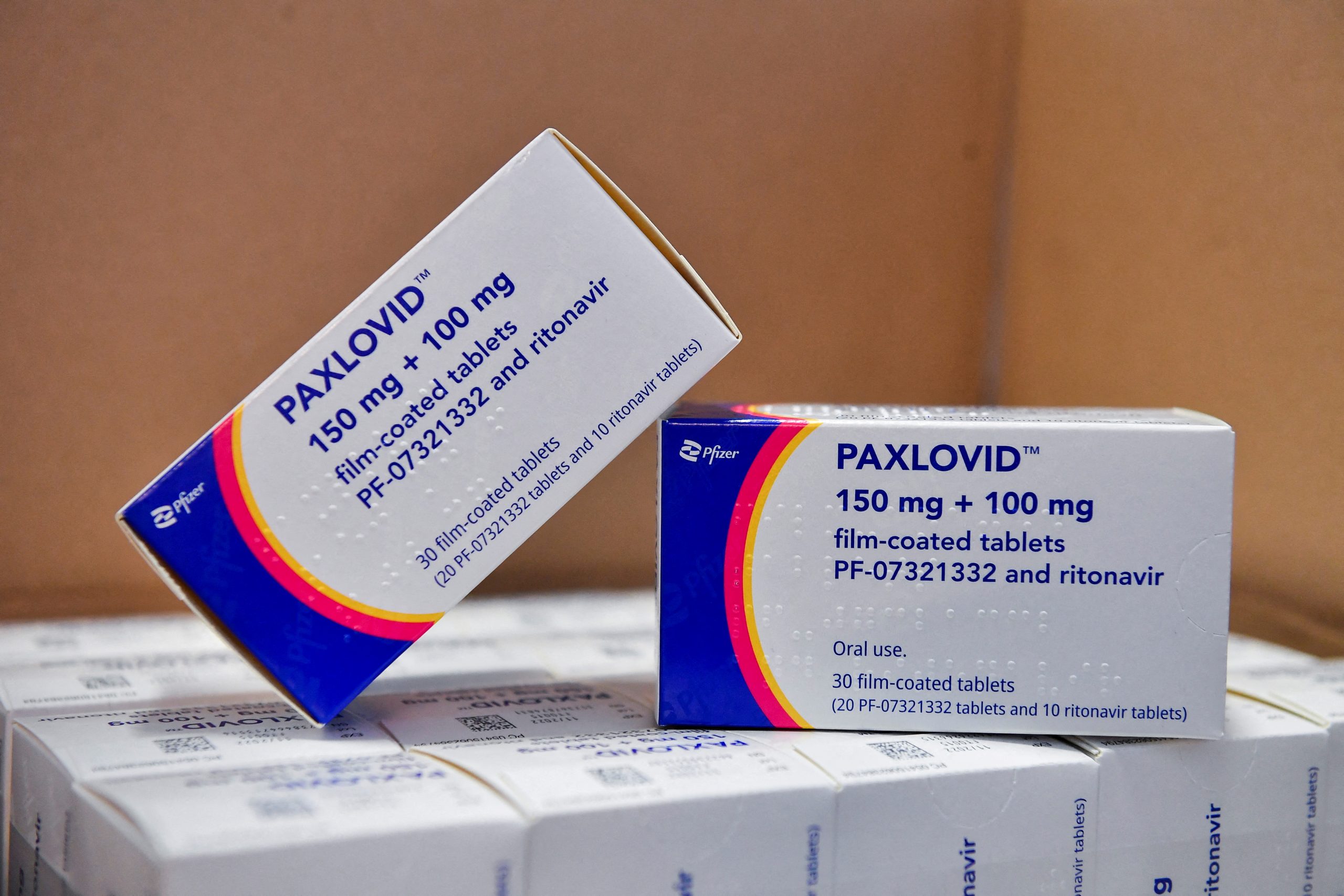
[elfsight_social_share_buttons id=”1″]
Use of Pfizer Inc’s COVID-19 antiviral Paxlovid spiked this week, but some doctors are reconsidering the pills for lower-risk patients after a U.S. public health agency warned that symptoms can recur after people complete a course of the drug, and that they should then isolate a second time.
More quarantine time “is not a crowd-pleaser,” Dr. Sandra Kemmerly, an infectious disease specialist at Ochsner Health in New Orleans, told Reuters. “For those people who really aren’t at risk … I would recommend that they not take it.”
Use of Pfizer’s Paxlovid, authorized to treat newly infected, at-risk people in order to prevent severe illness, has soared as infections have risen. More than 162,000 courses were dispensed last week – compared with an average of 33,000 a week since the drug was launched late last year, according to government data. Biden administration officials have pushed for wide use of Paxlovid, which the government purchased and provides free.
But higher use has also come with more reports from people who say their symptoms eased with Paxlovid only to return a few days after finishing a five-day regimen of the pills.
On Tuesday, the Centers for Disease Control and Prevention, citing case reports and concerns that relapsed patients could spread the virus, issued its advisory that Paxlovid users should isolate for a second five days if symptoms rebound.
“I am shying away from giving it to people who are very low- risk, and are not terribly ill, particularly people who are vaccinated and boosted,” said Dr. Bruce Farber, chief of public health and epidemiology for Northwell Health. He said he is still recommending Paxlovid for people who have significant health conditions or are over age 75.
Pfizer, in an email, said it is monitoring the data, but believes the return of detectable virus is uncommon and not uniquely associated with its drug. “We have not seen any resistance emerge to date in patients treated with Paxlovid,” a spokesperson said.
Paxlovid’s emergency authorization stipulates that it should be used only for newly infected people with risk factors, but doctors said many others have sought out a prescription.
“We get a lot of requests – maybe somebody is traveling, and they want to take it just in case,” said Dr. Tara Vijayan, infectious disease specialist at UCLA Health in Los Angeles. “We are not offering it as a just-in-case.”
The CDC also said it is unclear whether cases of rebound symptoms have anything to do with Paxlovid, or are simply part of the natural trajectory of COVID-19. The agency did not flag any specific concerns about health effects.
“COVID historically has had this sort of stuttering course – people will feel better one day and then feel worse the next day, but I can say we haven’t seen these rebound symptoms with other COVID treatments,” said Vijayan, referring to therapies such as monoclonal antibodies.
“The patients that do get a rebound, it’s usually very mild,” said Dr. Earl Strum, medical director of employee health at Keck Medicine of USC in Los Angeles.
Some question how much Paxlovid is helping given the high number of people vaccinated or previously infected with COVID-19. The drug was authorized in December after a study in unvaccinated, high-risk COVID patients with conditions like diabetes showed an 88% reduction in hospitalization or death.
At the time, the Delta variant was prevalent, but it has since been displaced by the more transmissible Omicron.
“There’s so much more baseline immunity around. There’s still a lot of infections, but they’re not nearly as severe,” Northwell’s Farber said.
He estimated the rate of Paxlovid-related COVID rebounds at around 10% – higher than the 3-4% rate cited by Pfizer in its trials of the drug.
Jason Gallagher, an infectious diseases expert at Temple University’s School of Pharmacy, said the rebounds do not detract from the drug’s utility. “It prevents you from going to the hospital … if you become symptomatic after you stop taking it, that stinks, but the overall drug was a success,” he said.
Copyright 2022 Thomson/Reuters
